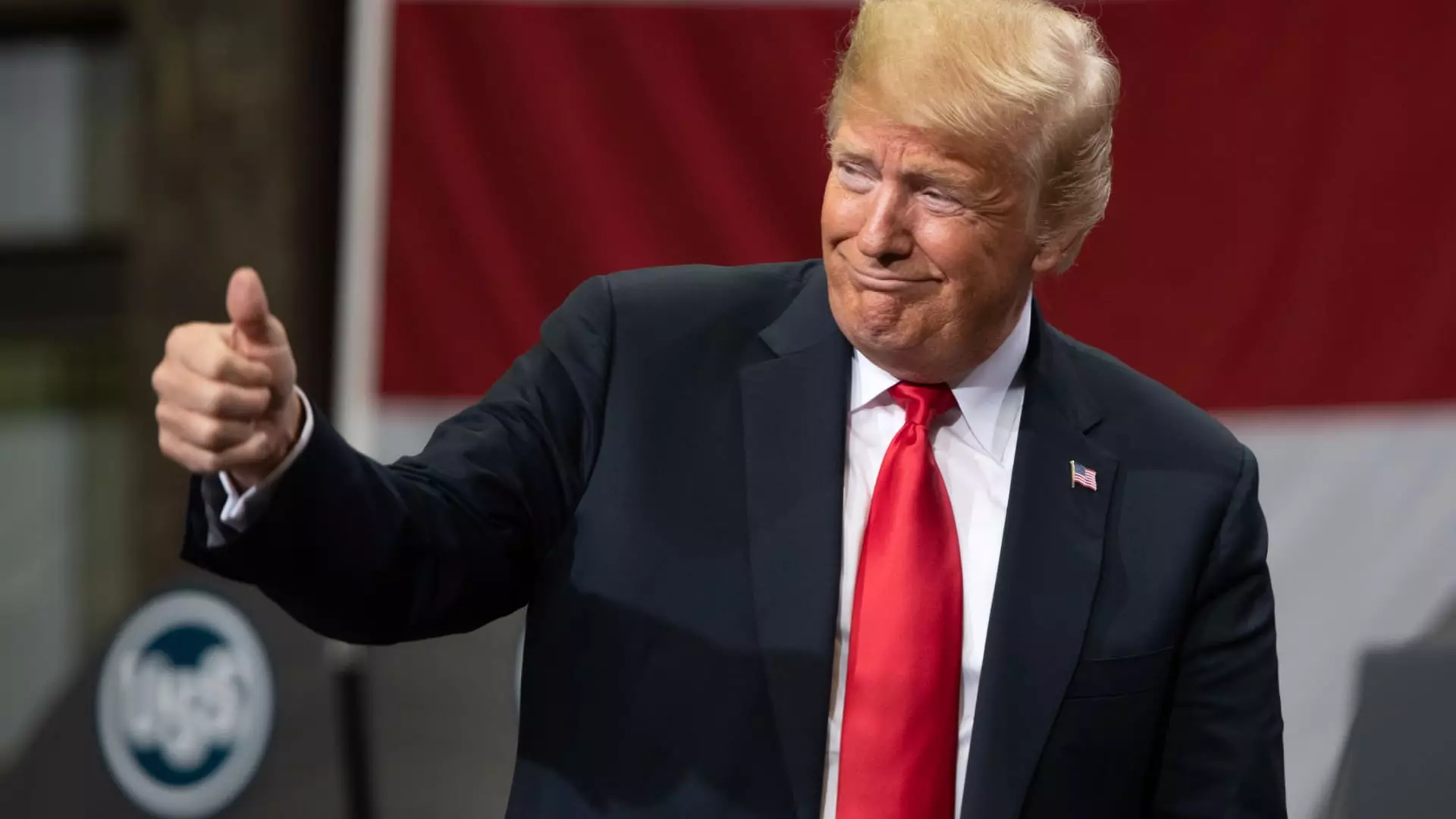The world of investing is often fraught with uncertainty, but when a former president, such as Donald Trump, attempts to sway the market with social media endorsements, it introduces an entirely new layer of complexity. On a seemingly typical Wednesday morning, Trump took to Truth Social with a recommendation that would swing the stock market, urging followers to buy stocks with an aggressive enthusiasm. While those who heeded his words saw an immediate financial windfall, the long-term implications of his actions raise serious questions about effective governance, ethical standards, and investor trust.
Trump’s proclamation of “THIS IS A GREAT TIME TO BUY!” arrived just moments before he walked back some tariffs, representing a significant pivot that contributed to a massive surge in stock values throughout the day. This led to staggering gains for investors and posed a tantalizing scenario: was this a genuine opportunity, or was it just another episode in the reality TV drama of his presidency? The abrupt market movements evoke the troubling specter of manipulation, wherein a single tweet—or in this case, post—could be construed as leverage to benefit his financial interests, particularly in his affiliation with Trump Media & Technology.
A Story of Dollar Signs and Distrust
The math is clear-cut: investors who took Trump’s advice and plunged into stocks at 9:37 a.m. saw returns that well surpassed 10%. For instance, the SPDR S&P 500 ETF Trust gained an impressive 11% within hours of his post. Figures can easily dazzle, but when we peel back the layers, we notice a disconcerting pattern. This isn’t merely a simple fluctuation spurred by market dynamics; it enables the narrative that a president can wield his power recklessly under the guise of encouraging investment, creating an environment where trust in political leadership becomes ephemeral.
Furthermore, consider the implications for retail investors, who flocked to grab potential profits without realizing the underlying volatility in the market. Many relied on a singular post from a man whose judgment has been questioned time and again. This scenario exemplifies a perilous trend: the commodification of leadership and the fragility of public sentiment in the face of flashy proclamations. While stock prices soared in the wake of his tweet, questions lingered regarding the moral fiber of such a tactic. What precedent does this set for the future? In a capitalist society where trust and credibility fuel economic growth, this reckless abandonment of ethical leadership can create deeper fissures within the fabric of market stability.
Long-Term Effects: Market Instability and Investor Sentiment
While the immediate gains captured the attention of financial analysts and retail investors alike, the longer-term landscape tells a different story. Just weeks following Trump’s initial announcement of steep tariffs, the market has still not fully recovered, revealing a bearish undertone that contradicts the optimism projected by a single positive social media interaction. Despite a one-day jump rooted in hype, the underlying conditions that led to market declines persist and pose vital challenges for stakeholders.
Critically, the chatter surrounding perceived market manipulation and insider trading is a reflection of a growing skepticism among investors. Retail trading forums like WallStreetBets are rife with conspiracy theories and distrust, revealing that many investors fear an unseen hand might be guiding market dynamics, rather than the organic fluctuations of supply and demand. This sentiment could create long-term volatility as mistrust fractures investor confidence—what happens when those small-time investors become disillusioned, questioning whether their investment decisions are based on merit or the machinations of a political figure exploiting the connection between leadership and finance for personal gain?
In the intricate dance of economics and politics, Donald Trump’s approach to stock investment on that fateful Wednesday encapsulates more than just a financial blip; it underscores ethical concerns that lie at the heart of liberalism. The mélange of personal interest, celebrity culture, and economic policy has the potential to shape a broader narrative about integrity in leadership. Investors deserve transparency and sincerity—not flashy catchphrases designed to enrich a singular entity at the expense of collective trust. As we reflect on this event, it should serve as a reminder that true leadership is built upon accountability and the betterment of society, not merely a vehicle for exploiting short-term gains.

